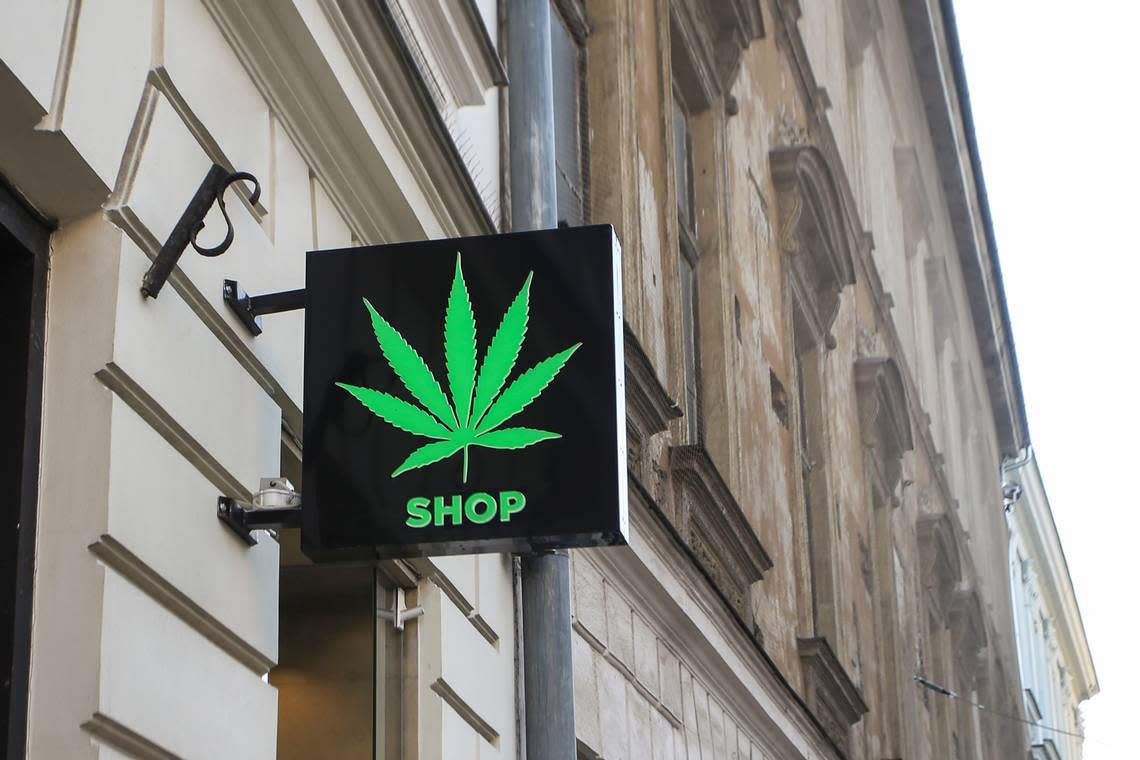Editorial | Get over ‘Reefer Madness’ fears. End the cannabis store ban in Tri-Cities

Richland’s stand against cannabis stores leaves the city looking increasingly out of touch in Washington.
“Everyone else is doing it” isn’t a good argument to legalize sales, but it’s far from the only reason the city council should abandon its fruitless, puritanical prohibition.
When Washington voters legalized personal possession of marijuana more than a decade ago, it became one of the first states to do so. Recreational cannabis stores soon followed. Today hundreds of medical and recreational dispensaries sell cannabis in the state, including five retail establishments in the Tri-Cities area.
Opponents’ Reefer Madness fears have not come to pass. Cannabis is well-regulated, and retail outlets haven’t trashed surrounding neighborhoods. Selling cannabis is no worse than selling liquor. Indeed, the same state board oversees both.
Richland’s sales ban doesn’t prevent residents from getting high or treating their aches and pains with a CBD edible. Personal possession and consumption are legal under state law. There might be no retail shops in Richland, but the ones in surrounding communities are just a few minutes away.
And those nearby communities are happy to have Richland’s business because they receive a cut of the taxes charged on cannabis. Last year, Benton County received $450,000, Prosser $23,000 and Benton City $5,900. Those sums aren’t transformative for local budgets, but every little bit helps. Richland, for its intransigence, gets nothing.
Worries about where stores might open in Richland also are misguided. The fact is that there are precious few addresses that could host a cannabis retailer. State-mandated buffer zones around schools, playgrounds and other facilities cover most of the city.
Even the federal government is lightening up on marijuana. The Biden administration has announced plans for the Drug Enforcement Administration to change how it classifies marijuana. Currently, the DEA classifies it as a Schedule III drug, akin to heroin and LSD. It will move marijuana to Schedule I, akin to Tylenol with codeine and steroids.
That change will ease many of the banking and insurance regulations that have left some cannabis shops stuck dealing in cash, which makes them targets for thieves.
The issue has come up again in Richland because a cannabis business wants to open a store and has submitted the paperwork. The application forces the city to vote on the matter once again. There might be some specific challenges with that application, but city council members should take this opportunity to consider the big picture.
Richland isn’t alone in banning retail stores locally. Kennewick also forbids them, and that city also should reconsider its position.
It appears the Richland council is closely divided. Tri-City Herald reporter Wendy Culverwell reported that members split 4-3 in favor of keeping the ban. Council members Ryan Lukson, Johanna Jones and Kurt Maier are ready to allow cannabis retailers. Mayor Theresa Richardson, Mayor Pro Tem Sandra Kent and Councilmen Ryan Whitten and Shayne VanDyke want to keep the ban.
Perhaps one of the naysayers is willing to reconsider in light of the realities of cannabis in Washington and increasing public support for it.
If the council doesn’t want to legalize cannabis shops itself, the least it could do is ask the public what it wants. A ballot referendum could test where the community is today, as opposed to more than a decade ago when cannabis legalization was something new.
Council members are reluctant to go to the ballot. Some say they can just look at the results of an upcoming measure in West Richland to gauge public opinion. The two communities differ enough, however, that either side will be able to dispute a vote there that doesn’t go its way. Differences in size, racial and ethnic diversity, median household income and other factors all make direct comparisons unwieldy.
When Richland originally refused to allow cannabis shops, it was after residents had voted against the statewide measure to legalize possession. There was, at the time, uncertainty about where things were headed and what effects easier access would have on communities.
More than a decade in, Richland can look at the rest of Washington and see that things have gone fine. The city’s ineffective ban is no better than a dry county that clung to alcohol prohibition nearly a century ago.

